Exploring Family-Owned Forests in Tennessee
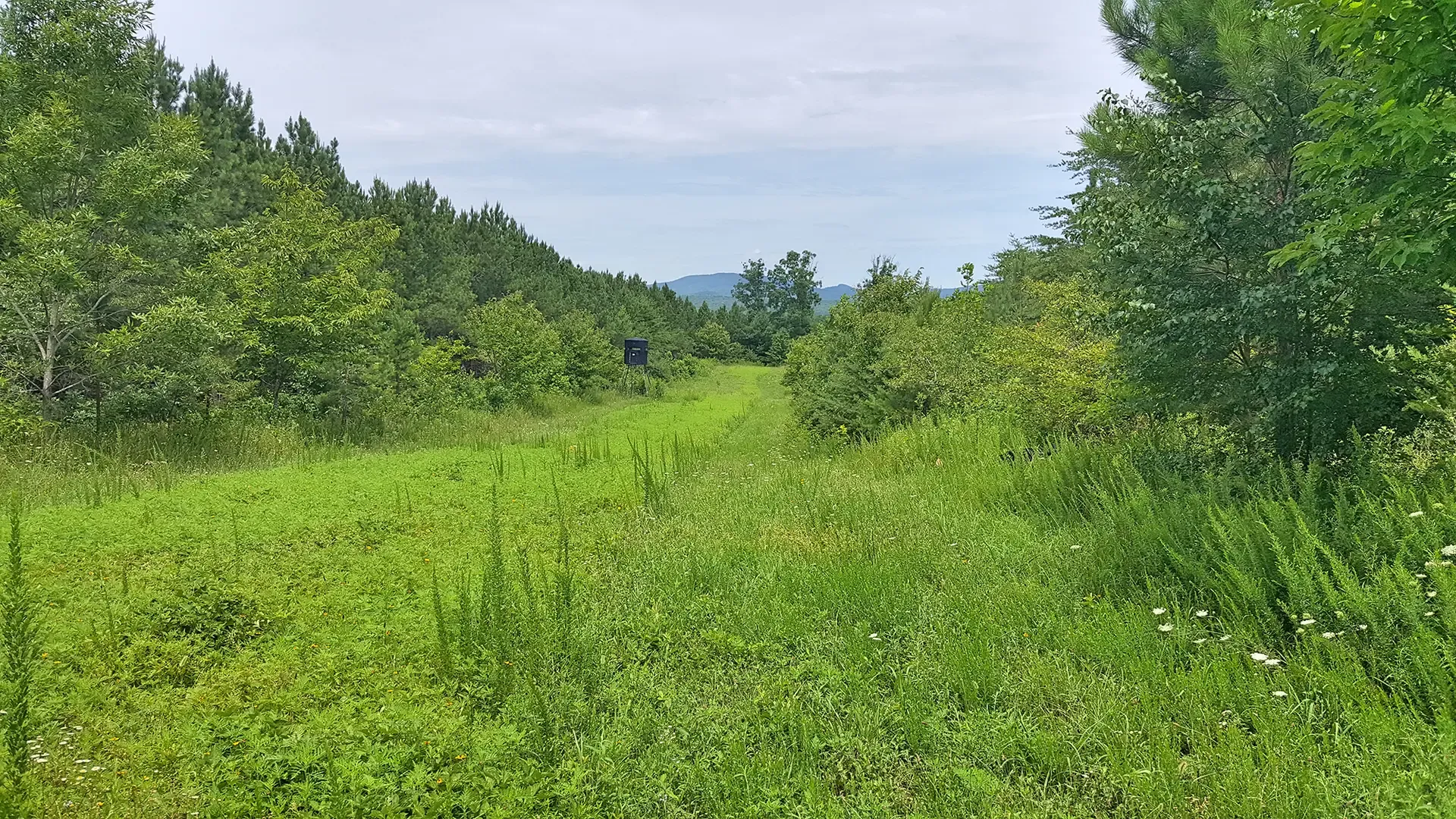
Tennessee's 2016 Outstanding Tree Farmers of the Year, Chris and Christina Anderson's ATFS-certified Tree Farm, CRC Stewardship Ridge, demonstrating a wildlife opening with a pine-oak-hickory forest type of East Tennessee's Cumberland Plateau. Image courtesy of Christina Anderson.
The American Tree Farm System is celebrating its 80th birthday this year, a movement founded June 12, 1941, on the concept that recognizing landowners who practiced good forest stewardship would spur others to follow suit. And throughout its rich history, some of its state affiliates have made bigger headlines than others.
Washington lays claim to the first certified Tree Farm, a Weyerhaeuser property known as the Clemons Tree Farm, and Alabama certified the ATFS’s first non-industrial property in 1943. In 1976, the group’s first Outstanding Tree Farmer of the Year award went to a family forest owner in Florida. Wisconsin arguably has the most bragging rights of all as home to more than half of all Tree Farms in the system, according to Angela Wells, Director of ATFS.
Tennessee: Emphasizing Educational Opportunities
Operating under the umbrella of the Tennessee Forestry Association, the Tennessee Tree Farm Committee is involved in a number of high-priority projects that will benefit both humans and wildlife. Among them is the Duck and Elk River Watershed Initiative, which offers landowners in 13 counties across central Tennessee a free visit from a professional forester.
The goal is to give landowners the knowledge and cost-sharing opportunities they need to better manage these environmentally critical areas. The Duck River is home to 50 species of mussels and 150 species of fish, making it the most biologically diverse river in North America, according to the TFA, and it’s the sole source of drinking water for 250,000 people in middle Tennessee. The Elk River is home to endangered fish and mussel species as well as popular warm-water sportfish like trout.
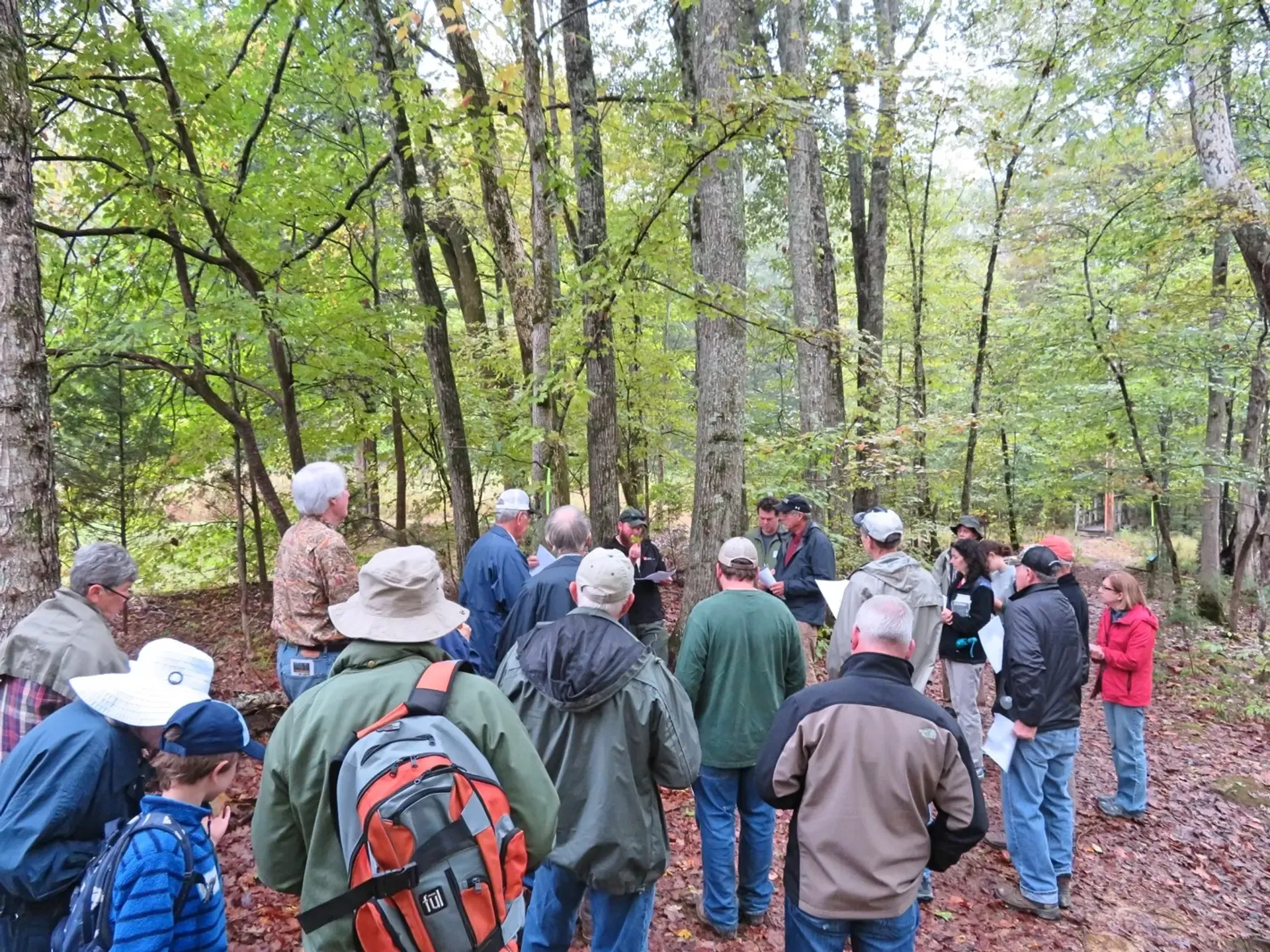
A field day help in Tennessee's Western Highland Rim Upland Oak Hickory Forest with Tennessee Tree Farm Committee Chair, Brian Hughett, and the Western Highland Rim Forestry Association. Image Courtesy of Brian Hughett.
Through the program, landowners will be able to maintain healthy forests and improve wildlife habitat for aquatic species and upland wildlife such as the northern bobwhite quail, turkey and white-tailed deer. The initiative focuses on establishing riparian forest buffers near rivers and streams that were once surrounded by agricultural land and shoring up existing riparian forest buffers.
The Duck and Elk River Watershed Initiative started last year with a direct-mail campaign targeting 50 landowners in each of the 13 counties, with the goal of reaching 6,000 landowners over the next two years. Foresters will share recommendations based on landowners’ objectives for their properties and help them develop land-management plans so they can enroll in the Tennessee Tree Farm program.
Similarly, the TFA is participating in the White Oak Initiative, an AFF-led partnership helping landowners regenerate this vital tree species. White oak provides habitat and nutrient-dense acorns that many species of wildlife rely upon, and it’s used for a variety of in-demand products, including bourbon barrels, furniture and flooring, making it an essential part of rural economies.
Since white oak is a slow-growing species, less-valuable and -desirable tree species often overtop it, and the result is that the rate of white oak regeneration is falling short of ever-growing consumer demand.
“The general consensus is that to keep pace with demand for white oak saw timber for forest products, primarily bourbon barrels and veneer, we need to focus across the entire U.S. native range on the regeneration of white oak,” said Brian Hughett, chair of the Tennessee Tree Farm Committee. “That’s something we’re actively engaged within Tennessee.”
The TFA’s outreach to landowners includes Tennessee Healthy Hardwood Field Days, held in partnership with the University of Tennessee Extension. These events are offered about five times a year at different locations and feature forestry experts addressing an array of topics, including stubborn invasive species like the emerald ash borer, gypsy moth and hemlock woolly adelgid.
Each year, the Tennessee Tree Farm program honors an Outstanding Tree Farmer of the Year as well as an Inspector of the Year. Winners are recognized at the TFA annual convention, which also features educational seminars.
Jasmine M. Brown, formerly the ATFS Southern regional manager, said the work of the Tennessee Tree Farm Committee is especially important since private, nonindustrial entities own 80% of the forestland in Tennessee. The state is 52.8% forested, ranking 20th in the nation, and each year, it grows twice as much wood volume as it harvests, according to the TFA.
“Tree Farmers in Tennessee are a part of an excellent organization with strong leadership and a highly motivated inspector base that continues to grow year after year,” Brown said.
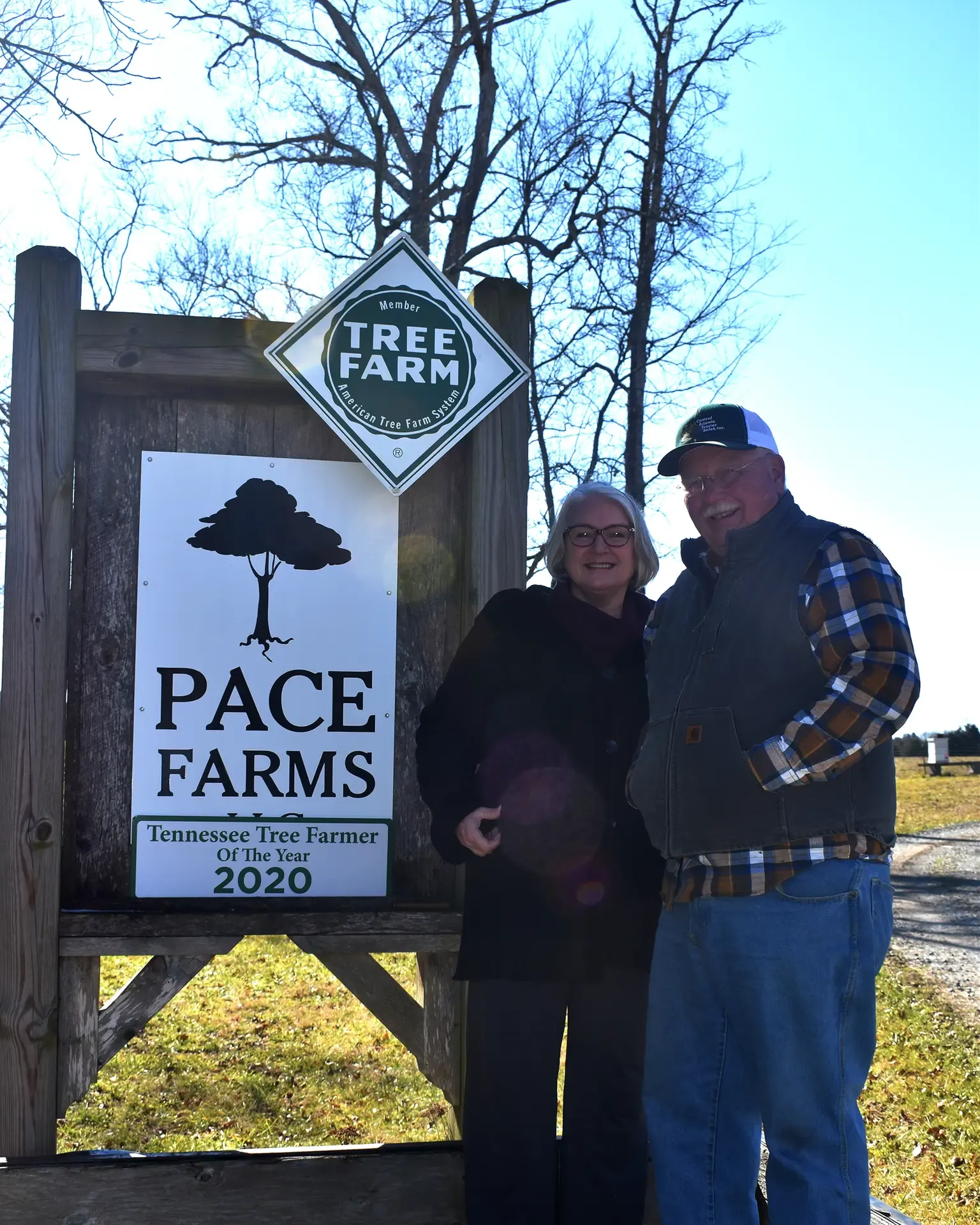
Tennessee's 2020 Outstanding Tree Farmers of the Year, Dan and Diana Pace, at their ATFS-certified Tree Farm, Pace Farms, LLC.
This piece was originally published as part of a larger article in AFF's quarterly magazine, Woodland Magazine. You can read the full piece in the digital edition of the publication.
Related Articles

November 20, 2025
New Film Showcases Carbon Project’s Impact on Family Landowners and Nature
The American Forest Foundation (AFF), a national organization committed to empowering family forest owners to create meaningful conservation impact, announced today the release of a new film that tells the story of the Family Forest Carbon Program (FFCP) and its impact on people and the planet.
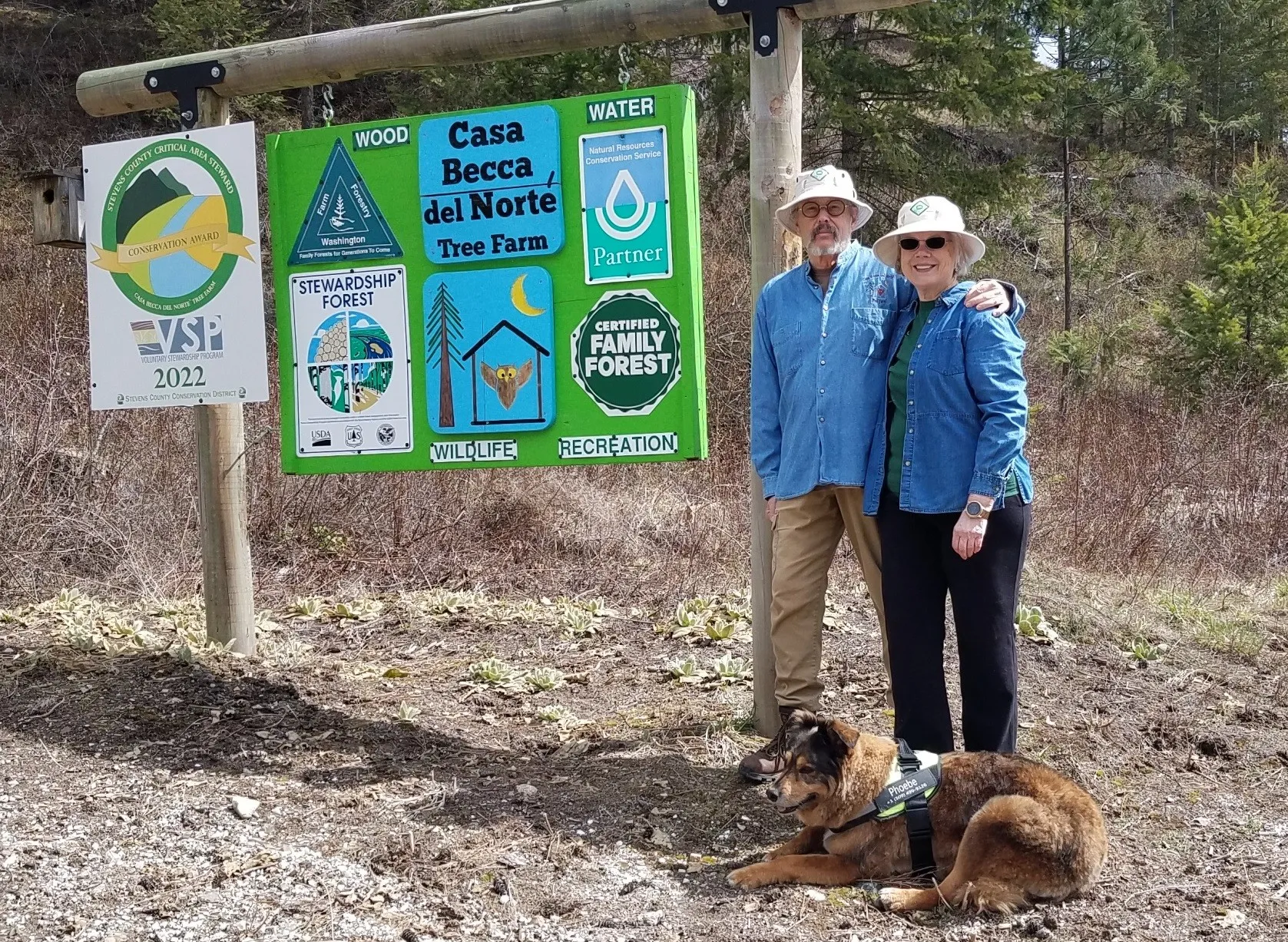
November 6, 2025
Meet the 2025 Outstanding Tree Farmers of the Western Region – Lynn and Becky Miner
Lynn and Becky Miner’s story is one of vision, perseverance, and transformation. When they first purchased their 100-acre property near Chewelah, Washington in 1992, it was far from the thriving, diverse forest it is today. They have poured their energy into turning “Casa Becca del Norte” (Becky’s House in the North) into a model Tree Farm, earning the recognition as 2025’s Outstanding Tree Farmers of the western region.
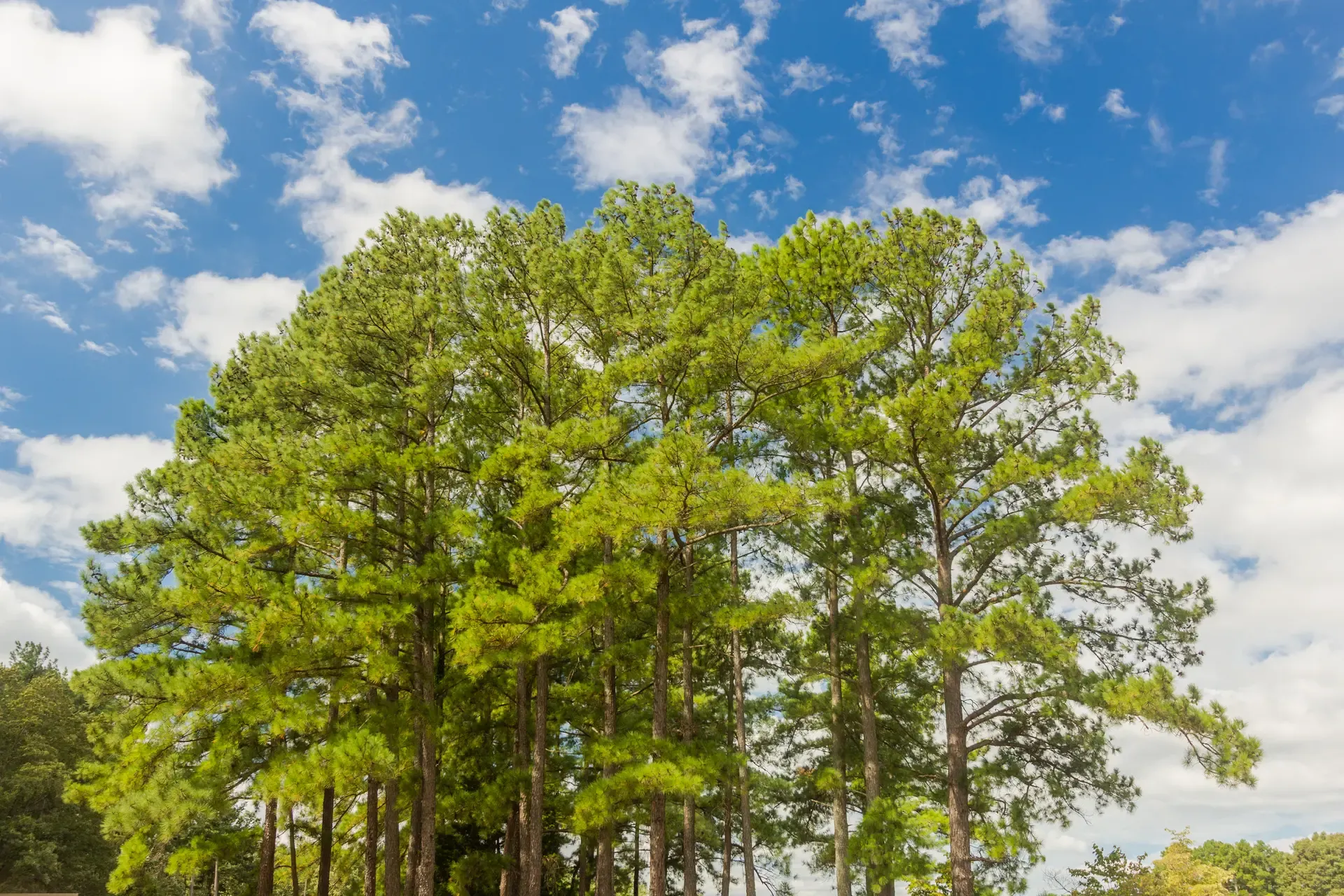
June 3, 2025
Why Wildlife Loves Loblolly—And How These Pines Can Benefit Your Land
A quiet stretch of pine trees can offer more than just scenery—it can provide vital habitat for wildlife across every season. Loblolly pine, the most common native tree species in the Southeast, plays a particularly important role in creating habitat for a wide variety of game and non-game species, from wild turkeys and rabbits to songbirds and squirrels.